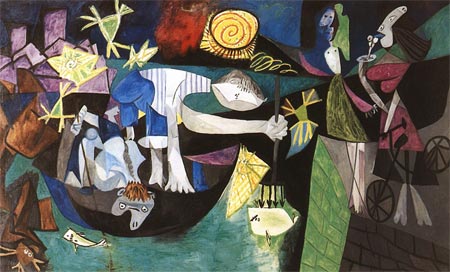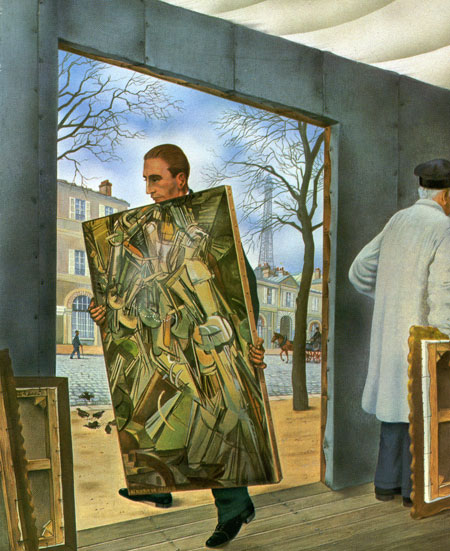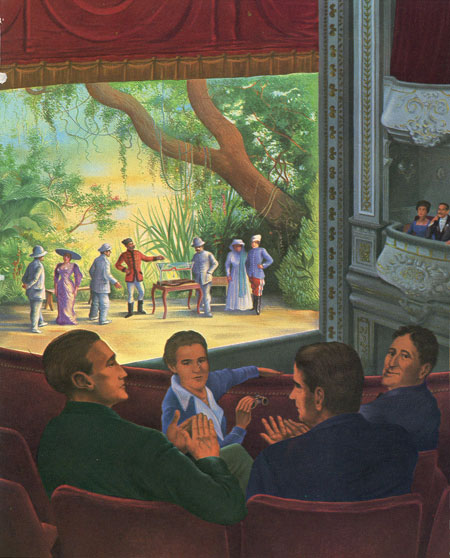
“—Was it you I saw this afternoon? a little while ago?
—Me? Why? Where?
—Were you there, where they’re showing Picasso’s new . . .
—Night Fishing in Antibes, yes, yes . . .
—Why didn’t you speak to us?
—Speak to who? You? Were you there?
—I was there, with a friend. You could have spoken to us, Wyatt, you didn’t have to pretend that . . . I was out with someone who . . .
—Who? I didn’t see them, I didn’t see you, I mean.
—You looked right at us. I’d already said, There’s my husband, we were near the door and you were bobbing . . .
—Listen . . .
—You went right past us going out.
—Look, I didn’t see you. Listen, that painting, I was looking at the painting. Do you see what this was like, Esther? seeing it?
—I saw it.
—Yes but, when I saw it, it was one of those moments of reality, of near-recognition of reality. I’d been . . . I’ve been worn out in this piece of work, and when I finished it I was free, free all of a sudden out in the world. In the street everything was unfamiliar, everything and everyone I saw was unreal, I felt like I was going to lose my balance out there, this feeling was getting all knotted up inside me and I went in there just to stop for a minute. And then I saw this thing. When I saw it all of a sudden everything was freed into one recognition, really freed into reality that we never see, you never see it. You don’t see it in paintings because most of the time you can’t see beyond a painting. Most paintings, the instant you see them they become familiar, and then it’s too late. Listen, do you see what I mean?
—As Don said about Picasso . . . she commenced.
—That’s why people can’t keep looking at Picasso and expect to get anything out of his paintings, and people, no wonder so many people laugh at him. You can’t see them any time, just any time, because you can’t see freely very often, hardly ever, maybe seven times in a life.
—I wish, she said, —I wish . . .”
(Gaddis, The Recognitions, pp. 91–92.)



